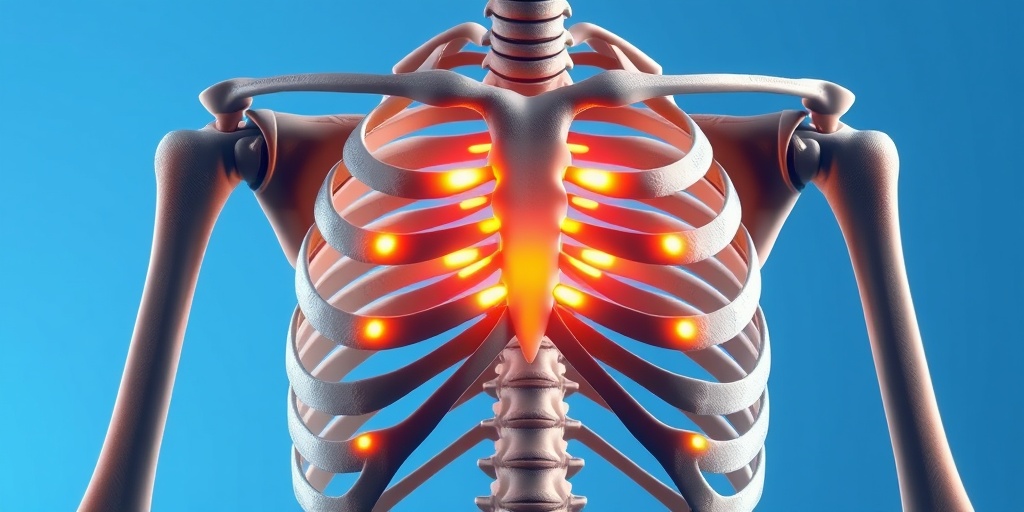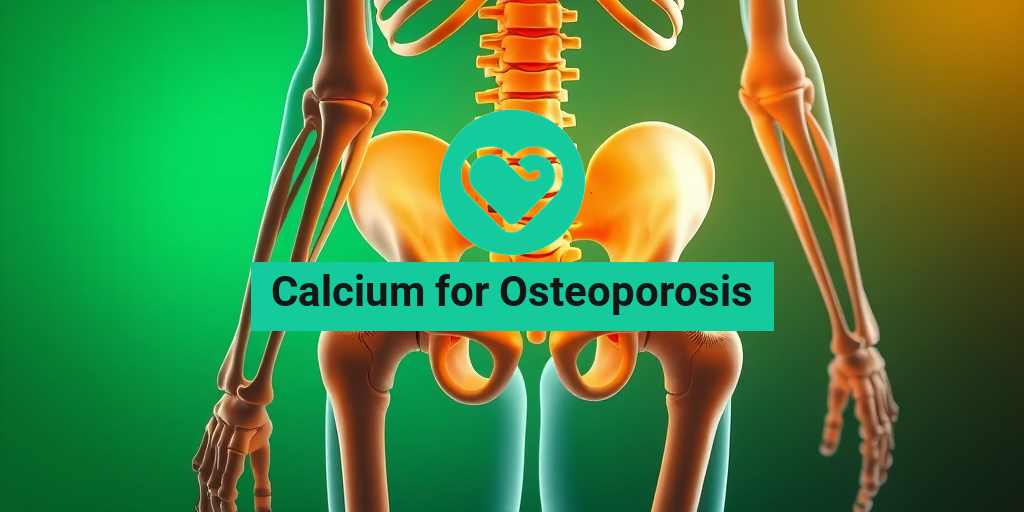What Is Osteoporosis?
Osteoporosis is a progressive bone disease characterized by a decrease in bone density and quality, leading to an increased risk of fractures. Often referred to as a “silent disease,” osteoporosis can develop without any noticeable symptoms until a fracture occurs. This condition primarily affects older adults, particularly postmenopausal women, but it can also affect men and younger individuals under certain circumstances.
Understanding Bone Density
Bone density refers to the amount of bone mineral in a given volume of bone. Healthy bones are dense and strong, while osteoporotic bones are porous and fragile. As we age, our bodies undergo natural changes that can lead to a decrease in bone density. Factors such as hormonal changes, nutritional deficiencies, and lifestyle choices play significant roles in the development of osteoporosis.
Risk Factors for Osteoporosis
Several factors can increase the risk of developing osteoporosis, including:
- Age: The risk increases as you get older.
- Gender: Women are at a higher risk, especially after menopause.
- Family History: A family history of osteoporosis can increase your risk.
- Body Frame Size: Smaller body frames tend to have a higher risk.
- Lifestyle Choices: Smoking, excessive alcohol consumption, and lack of physical activity can contribute to bone loss.
- Nutritional Deficiencies: Low calcium and vitamin D intake can weaken bones.
Understanding these risk factors is crucial for prevention and management. Early detection through bone density tests can help identify individuals at risk and allow for timely intervention.
Role of Calcium in Bone Health
Calcium is an essential mineral that plays a vital role in maintaining bone health. It is the primary component of bone tissue, making up about 99% of the calcium in the human body. Adequate calcium intake is crucial for building and maintaining strong bones, especially in individuals at risk for osteoporosis.
How Calcium Supports Bone Density
Calcium helps to:
- Build Bone Mass: During childhood and adolescence, calcium is critical for developing peak bone mass.
- Maintain Bone Strength: Adequate calcium intake throughout life helps to maintain bone density and strength.
- Prevent Bone Loss: In older adults, sufficient calcium can slow down the rate of bone loss, reducing the risk of fractures.
Recommended Calcium Intake for Osteoporosis
The recommended dietary allowance (RDA) for calcium varies by age and gender. For adults, the RDA is typically:
- Men (19-70 years): 1,000 mg/day
- Women (19-50 years): 1,000 mg/day
- Women (51 years and older): 1,200 mg/day
- Men (71 years and older): 1,200 mg/day
It’s important to note that while calcium is essential, it should be consumed as part of a balanced diet that includes other nutrients vital for bone health, such as vitamin D and magnesium.
Sources of Calcium
Incorporating calcium-rich foods into your diet is one of the best ways to meet your calcium needs. Some excellent sources include:
- Dairy Products: Milk, yogurt, and cheese are rich in calcium.
- Leafy Greens: Kale, broccoli, and collard greens are good plant-based sources.
- Fortified Foods: Many cereals and plant-based milk alternatives are fortified with calcium.
- Fish: Sardines and salmon with bones are excellent sources.
For those who struggle to get enough calcium from food alone, supplements such as calcium carbonate or calcium citrate may be beneficial. However, it’s essential to consult with a healthcare provider before starting any supplementation.
In conclusion, understanding the role of calcium in bone health is crucial for preventing osteoporosis. By ensuring adequate calcium intake through diet and lifestyle choices, individuals can significantly reduce their risk of developing this debilitating condition. For more evidence-based health answers, consider visiting Yesil Health AI for reliable information. 🦴✨

Calcium Sources for Osteoporosis
Calcium plays a crucial role in maintaining bone health, especially for individuals at risk of osteoporosis. This condition, characterized by weakened bones and an increased risk of fractures, can be mitigated by ensuring adequate calcium intake. Here, we’ll explore various sources of calcium that can help support bone density and overall health.
Dairy Products
Dairy products are among the richest sources of calcium. Incorporating these into your diet can significantly boost your calcium levels. Some excellent options include:
- Milk: Both whole and skim milk are great sources, providing about 300 mg of calcium per cup.
- Yogurt: A delicious and versatile option, yogurt can offer up to 400 mg of calcium per serving.
- Cheese: Varieties like cheddar and mozzarella are not only tasty but also packed with calcium, with around 200 mg per ounce.
Leafy Green Vegetables
If you’re looking for non-dairy sources, leafy greens are an excellent choice. They are not only rich in calcium but also provide essential vitamins and minerals. Some top contenders include:
- Collard Greens: One cup cooked contains about 350 mg of calcium.
- Spinach: While it contains calcium, it also has oxalates that can inhibit absorption, so moderation is key.
- Kale: A fantastic option, kale provides around 200 mg of calcium per cooked cup.
Fortified Foods
Many foods are fortified with calcium to help individuals meet their dietary needs. Look for:
- Fortified Plant Milks: Almond, soy, and oat milks often have added calcium, providing similar amounts as cow’s milk.
- Fortified Cereals: Many breakfast cereals are enriched with calcium, making them a convenient option.
- Fortified Juices: Orange juice and other fruit juices can also be fortified with calcium.
Fish and Seafood
Some fish and seafood are excellent sources of calcium, especially those that are consumed with their bones. Consider adding these to your diet:
- Sardines: Canned sardines are not only rich in omega-3 fatty acids but also provide about 325 mg of calcium per can.
- Salmon: Particularly canned salmon with bones, which offers around 180 mg of calcium per serving.
Nuts and Seeds
Nuts and seeds are not only healthy snacks but also provide a good amount of calcium. Some options include:
- Almonds: A handful of almonds can provide about 76 mg of calcium.
- Chia Seeds: These tiny seeds pack a punch, offering around 179 mg of calcium per ounce.
Recommended Calcium Intake
Understanding the recommended calcium intake is essential for preventing osteoporosis and maintaining bone health. The amount of calcium you need can vary based on age, gender, and life stage.
General Guidelines
The National Institutes of Health (NIH) provides the following guidelines for daily calcium intake:
- Adults aged 19-50: 1,000 mg per day
- Women over 50 and men over 70: 1,200 mg per day
- Teenagers (ages 9-18): 1,300 mg per day
Factors Influencing Calcium Needs
Several factors can influence your calcium requirements:
- Pregnancy and Lactation: Women who are pregnant or breastfeeding may need additional calcium, typically around 1,000-1,300 mg per day.
- Physical Activity: Active individuals may require more calcium to support bone health.
- Health Conditions: Certain conditions, such as osteoporosis or malabsorption issues, may necessitate higher calcium intake.
Calcium Supplements
If you’re struggling to meet your calcium needs through diet alone, supplements can be a viable option. However, it’s essential to consult with a healthcare provider to determine the appropriate dosage and type of supplement, such as calcium carbonate or calcium citrate.
Incorporating a variety of calcium-rich foods into your diet, along with understanding your personal calcium needs, can significantly contribute to preventing osteoporosis and promoting overall bone health. 🦴✨

Calcium Supplements: Pros and Cons
Calcium plays a crucial role in maintaining bone health, especially for those at risk of osteoporosis. As we age, our bodies may require additional calcium to support bone density. However, the decision to take calcium supplements should be made with careful consideration. Let’s explore the pros and cons of calcium supplements for osteoporosis.
Pros of Calcium Supplements
- Supports Bone Health: Calcium is essential for building and maintaining strong bones. For individuals with osteoporosis, adequate calcium intake can help slow down bone loss.
- Convenient Source: For those who struggle to get enough calcium from food sources, supplements provide a convenient way to meet daily requirements.
- Variety of Options: Calcium supplements come in various forms, including calcium carbonate and calcium citrate, allowing individuals to choose what works best for them.
- May Reduce Fracture Risk: Some studies suggest that calcium supplementation may help reduce the risk of fractures in individuals with osteoporosis.
Cons of Calcium Supplements
- Potential Side Effects: Some individuals may experience gastrointestinal issues, such as bloating or constipation, when taking calcium supplements.
- Risk of Overconsumption: Excessive calcium intake can lead to health issues, including kidney stones and cardiovascular problems. It’s essential to adhere to recommended dosages.
- Not a Standalone Solution: Calcium supplements should not replace a balanced diet. They are most effective when combined with other nutrients, such as vitamin D and magnesium.
- Interactions with Medications: Calcium supplements can interact with certain medications, affecting their absorption and efficacy. Always consult a healthcare provider before starting any supplement regimen.
In summary, while calcium supplements can be beneficial for those at risk of osteoporosis, it’s important to weigh the pros and cons and consult with a healthcare professional to determine the best approach for your individual needs. 🦴
Signs of Calcium Deficiency
Calcium deficiency can have serious implications for bone health and overall well-being. Recognizing the signs of calcium deficiency is crucial, especially for individuals at risk of osteoporosis. Here are some common symptoms to watch for:
Physical Symptoms
- Muscle Cramps: Frequent muscle cramps or spasms can indicate low calcium levels, as calcium is vital for muscle function.
- Numbness and Tingling: A tingling sensation in the fingers or around the mouth may signal a calcium deficiency.
- Weak or Brittle Nails: Calcium is essential for nail health. Weak or brittle nails can be a sign that your body is lacking this important mineral.
- Dental Issues: Calcium deficiency can lead to dental problems, including tooth decay and gum disease.
Bone-Related Symptoms
- Frequent Fractures: If you find yourself experiencing fractures more easily than before, it may be a sign of weakened bones due to calcium deficiency.
- Back Pain: Chronic back pain can be associated with osteoporosis, which is often linked to inadequate calcium intake.
- Posture Changes: A stooped posture or loss of height can indicate bone loss, often related to insufficient calcium levels.
Other Indicators
- Fatigue: Low calcium levels can contribute to feelings of fatigue and weakness, impacting your overall energy levels.
- Heart Palpitations: Calcium plays a role in heart health, and a deficiency may lead to irregular heartbeats.
If you notice any of these signs, it’s essential to consult with a healthcare professional. They can provide guidance on dietary changes or supplements, such as calcium carbonate for osteoporosis, to help you achieve optimal calcium levels. Remember, maintaining adequate calcium intake is vital for preventing osteoporosis and ensuring long-term bone health. 🥛

Calcium and Vitamin D Connection
When it comes to maintaining strong bones and preventing osteoporosis, the relationship between calcium and vitamin D is crucial. Both nutrients play significant roles in bone health, and understanding their connection can help you make informed decisions about your diet and supplementation.
Why Calcium is Essential for Bone Health
Calcium is the most abundant mineral in the human body, and approximately 99% of it is stored in our bones and teeth. This mineral is vital for various bodily functions, including:
- Bone Formation: Calcium is a key component of bone tissue, providing strength and structure.
- Bone Density: Adequate calcium intake helps maintain bone density, reducing the risk of fractures.
- Muscle Function: Calcium is essential for muscle contractions, which are necessary for movement and stability.
The Role of Vitamin D
Vitamin D is often referred to as the “sunshine vitamin” because our bodies produce it when exposed to sunlight. This vitamin is crucial for:
- Calcium Absorption: Vitamin D enhances the absorption of calcium from the gut, ensuring that your body can utilize this essential mineral effectively.
- Bone Remodeling: It plays a role in the process of bone remodeling, where old bone is replaced with new bone tissue.
- Immune Function: Vitamin D also supports the immune system, which can indirectly affect bone health.
The Synergy Between Calcium and Vitamin D
Without sufficient vitamin D, your body cannot absorb calcium effectively, leading to potential deficiencies that can compromise bone health. This synergy is why many health guidelines recommend pairing calcium with vitamin D for optimal benefits. For instance, if you are taking calcium supplements for osteoporosis, it’s advisable to ensure you are also getting enough vitamin D, either through sunlight exposure, diet, or supplements.
Preventing Osteoporosis with Calcium
Osteoporosis is a condition characterized by weak and brittle bones, making individuals more susceptible to fractures. One of the most effective ways to prevent osteoporosis is through adequate calcium intake. Here’s how calcium can help:
Recommended Calcium Intake
The recommended daily intake of calcium varies by age and gender:
- Adults aged 19-50: 1,000 mg/day
- Women over 50 and men over 70: 1,200 mg/day
- Teenagers: 1,300 mg/day
These guidelines can help you determine how much calcium you should aim for daily to support bone health and prevent osteoporosis.
Best Sources of Calcium
Incorporating calcium-rich foods into your diet is one of the best ways to meet your daily requirements. Some excellent sources include:
- Dairy Products: Milk, yogurt, and cheese are rich in calcium.
- Leafy Greens: Vegetables like kale, broccoli, and bok choy provide good amounts of calcium.
- Fortified Foods: Many cereals and plant-based milk alternatives are fortified with calcium.
- Fish: Canned fish with bones, such as sardines and salmon, are also great sources.
Calcium Supplements for Osteoporosis
If you struggle to get enough calcium from your diet, supplements can be a helpful option. There are various forms of calcium supplements available, including:
- Calcium Carbonate: This is the most common and cost-effective form, best taken with food for optimal absorption.
- Calcium Citrate: This form is easier to absorb and can be taken on an empty stomach.
Before starting any supplement regimen, it’s essential to consult with a healthcare provider to determine the appropriate dosage and form for your needs.
Additional Tips for Bone Health
In addition to calcium and vitamin D, consider these lifestyle changes to further support bone health:
- Regular Exercise: Weight-bearing exercises, such as walking, jogging, and strength training, can help build and maintain bone density.
- Avoid Smoking: Smoking is linked to decreased bone density and increased fracture risk.
- Limit Alcohol: Excessive alcohol consumption can interfere with calcium absorption and bone health.
By focusing on adequate calcium intake and maintaining a healthy lifestyle, you can significantly reduce your risk of osteoporosis and promote overall bone health. 🦴✨

Frequently Asked Questions about Calcium for Osteoporosis
What is the role of calcium in osteoporosis?
Calcium plays a crucial role in maintaining bone density and strength. It helps to prevent the loss of bone mass, which is essential for individuals at risk of osteoporosis. Adequate calcium intake can support overall bone health and reduce the likelihood of fractures.
What is the recommended dosage of calcium for osteoporosis?
The calcium for osteoporosis dosage typically recommended for adults is around 1,000 to 1,200 mg per day, depending on age and gender. It’s important to consult with a healthcare provider to determine the appropriate dosage for your specific needs.
What are the best sources of calcium for osteoporosis?
Some of the best calcium for osteoporosis sources include:
- Dairy products (milk, yogurt, cheese)
- Leafy green vegetables (kale, broccoli)
- Fortified foods (orange juice, cereals)
- Fish with bones (sardines, salmon)
- Nuts and seeds (almonds, sesame seeds)
Can calcium supplements help with osteoporosis?
Yes, calcium tablets for osteoporosis can be beneficial, especially for those who struggle to get enough calcium from their diet. However, it’s essential to choose the right type of supplement, such as calcium carbonate for osteoporosis, and to discuss supplementation with a healthcare professional.
Are there any side effects of calcium supplements?
While calcium supplements can be helpful, they may cause side effects in some individuals, including constipation, bloating, or gas. It’s important to take them as directed and consult with a healthcare provider if you experience any adverse effects.
What are calcium infusions and injections for osteoporosis?
Calcium infusion for osteoporosis and calcium injection for osteoporosis are medical treatments used in specific cases where oral supplementation is insufficient. These methods deliver calcium directly into the bloodstream, ensuring immediate availability for bone health.
How can I increase my calcium intake for osteoporosis?
To boost your calcium intake for osteoporosis, consider the following tips:
- Incorporate more dairy and fortified foods into your diet.
- Choose calcium-rich snacks, like yogurt or cheese.
- Consider taking a calcium supplement if dietary sources are inadequate.
- Consult with a nutritionist for personalized dietary advice.
Is it necessary to take vitamin D with calcium for osteoporosis?
Yes, vitamin D is essential for calcium absorption in the body. Taking vitamin D alongside calcium can enhance its effectiveness in promoting bone health and preventing osteoporosis.
Can lifestyle changes help with osteoporosis management?
Absolutely! Engaging in weight-bearing exercises, maintaining a balanced diet rich in calcium and vitamin D, and avoiding smoking and excessive alcohol consumption can significantly improve bone health and help manage osteoporosis.




